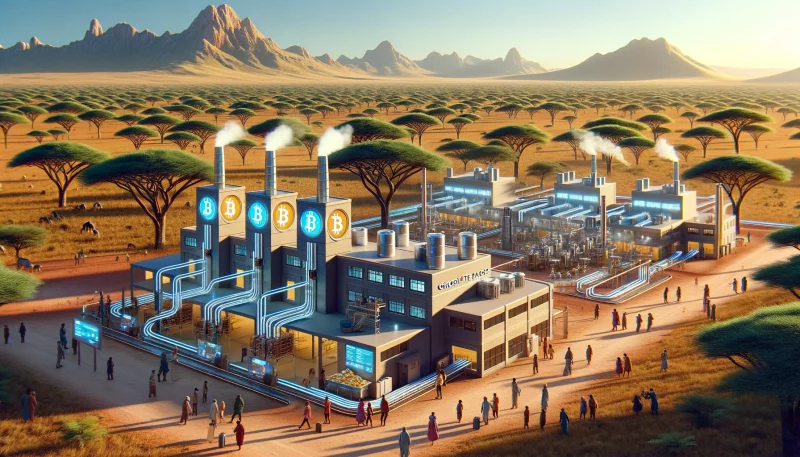
Bitcoin mining fuels green energy and creates sustainable jobs in African national park: World Economic Forum
Virunga National Park faces many challenges, including threats to rangers and declines in tourism revenue.
Virunga National Park in Congo is now home to a net-zero Bitcoin mine that is driving the park’s sustainable development. The World Economic Forum (WEF) showed in a video last week that Bitcoin mining supports renewable energy development, local job creation, and chocolate factories in Africa’s oldest national park.
According to the WEF’s video, net-zero Bitcoin mining has addressed some key challenges in Virunga. The Bitcoin mine, established in 2020, generates approximately $150,000 monthly, matching the park’s income from tourism, which has been negatively impacted by the COVID-19 pandemic.
This income supports salaries and infrastructure within the park, including a chocolate factory that processes local cocoa beans. The factory prioritizes employment for the widows of rangers who have died, protecting Virunga and offering them a stable income and a chance to benefit fully from their cocoa crops.
“The mine is powered by clean energy from Virunga’s 3 hydroelectric power plants. Its excess electricity is used by the factory to process cocoa beans. While the Bitcoin it mines pay for the salaries and infrastructure. The chocolate factory trains and employs local workers. With priority given to the widows of rangers killed while protecting the park. It enables local farmers and workers to extract the full benefit of their cocoa crop,” according to the WEF.
In addition, the clean energy powering the mine (hydroelectric plants) also benefits the park and local communities. The surplus electricity from these plants supplies power to households, reduces deforestation for fuel gathering.
The WEF highlighted at the end of the video that:
“Critics say that Bitcoin mines have no place in a conservation area, and that the hydropower could be put to better use elsewhere. But still others see net-zero Bitcoin mining as a useful way to fund conservation, especially in a conflict area that can’t profit from ecotourism.”
The World Economic Forum is a global organization that convenes leaders from various sectors to tackle pressing global issues. In 2019, Larry Fink, the co-founder, chairman, and CEO of BlackRock, joined the WEF Board of Trustees, a group that provides strategic guidance and oversight to the organization.
In December 2017, the WEF raised concerns about Bitcoin mining’s potential energy consumption, predicting it could surpass global energy use that year.

 Earn with Nexo
Earn with Nexo